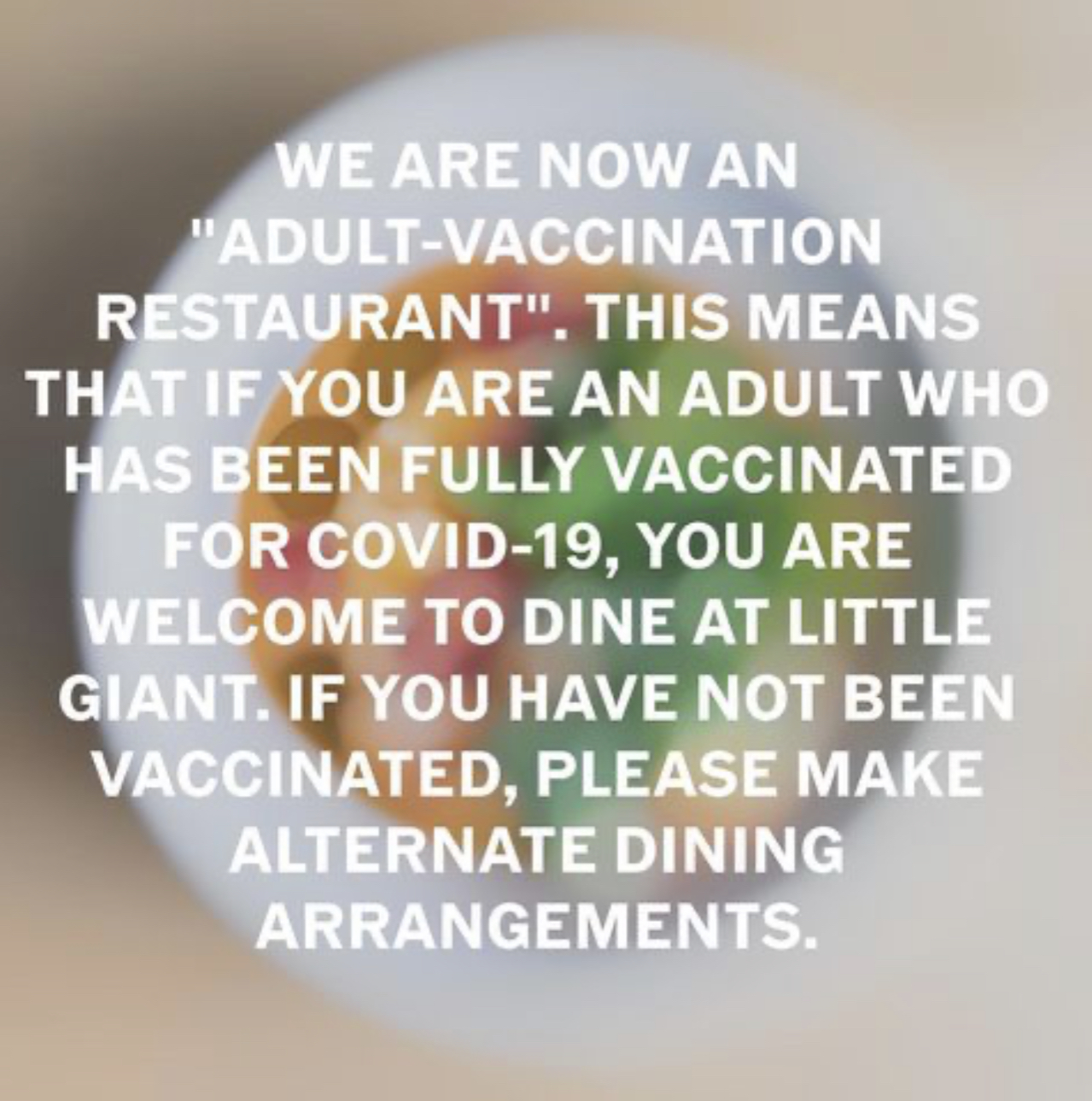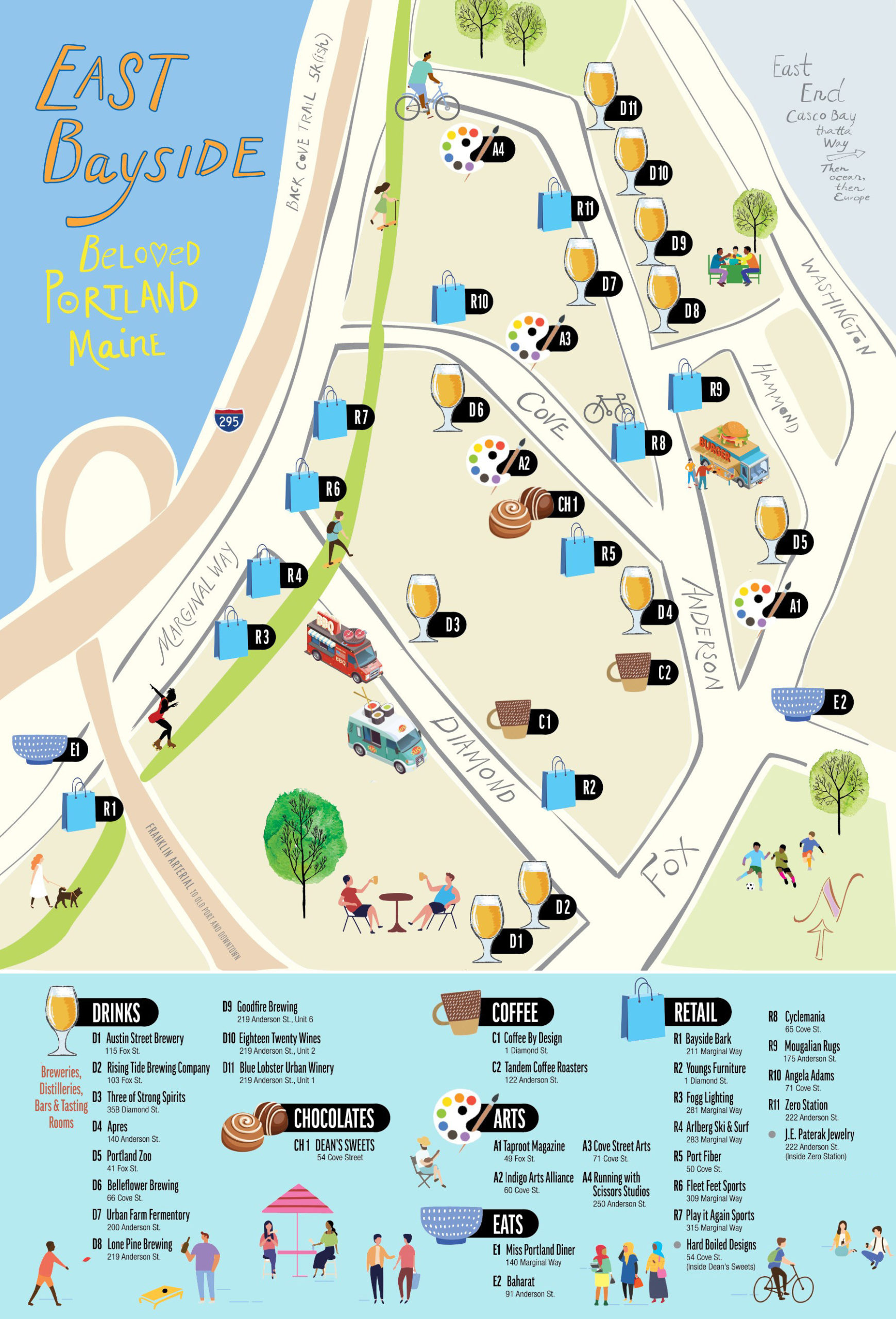 Little Giant has announced a new policy for their West End restaurant,
Little Giant has announced a new policy for their West End restaurant,
We are now an “adult-vaccination restaurant.” This means that if you are an adult who has been fully vaccinated for COVID-19, you are welcome to dine at Little Giant. If you have not been vaccinated, please make alternate dining arrangements.
Vaccine ineligible children and vaccinated adults are welcome to dine at Little Giant in our outdoor dining options only. If you are dining with children, please select outdoor dining when booking or call us at 207-747-5045 to discuss dining options.
Masks are required when not eating or drinking. Our bar seats are currently unavailable.
While this may be the first Portland restuarant to implement this approach, a growing number of restaurants in NYC are taking the additional step of requiring diners to show proof of vaccination to eat indoors.
Update: The Hunt + Alpine Club is also asking their customers to be fully vaccinated to be seated indoors at their bar, and Crown Jewel on Great Diamond Island has announced that indoor seating is only for vaccinated customers.
For more reporting on this subject read this article by the Press Herald.
